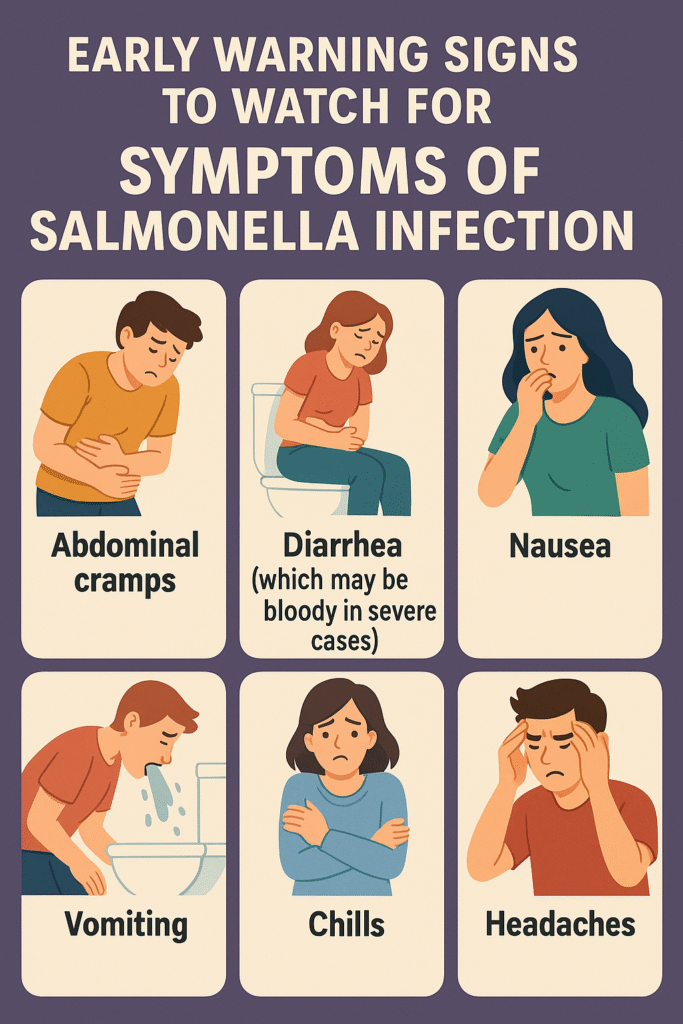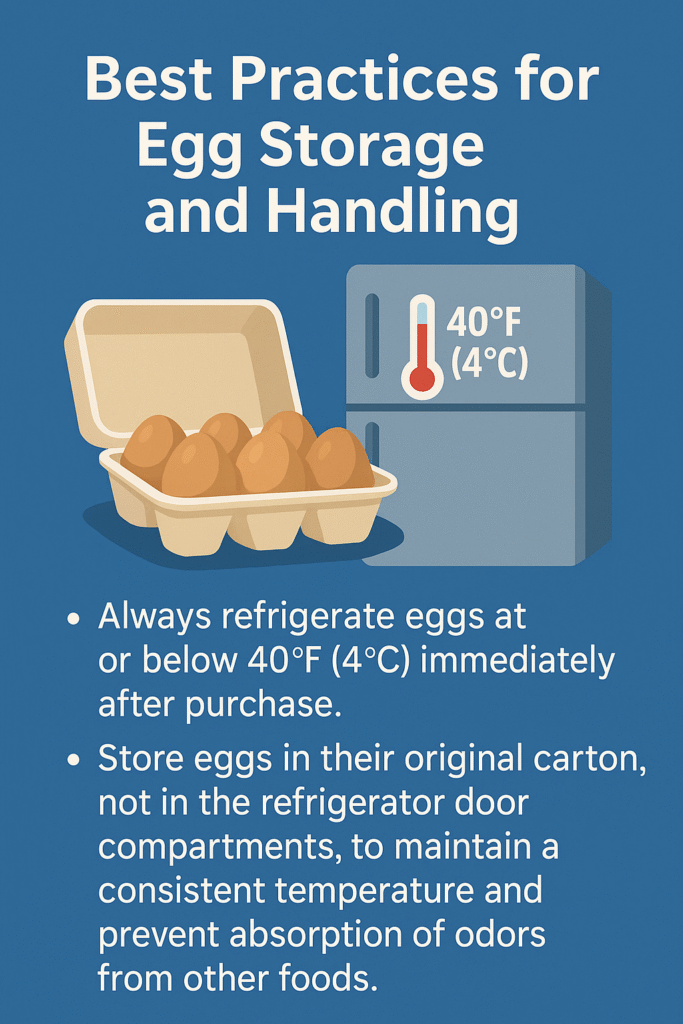Physical Address
304 North Cardinal St.
Dorchester Center, MA 02124
Physical Address
304 North Cardinal St.
Dorchester Center, MA 02124


A Massive Egg Recall has swept across the USA, affecting over 200 million eggs due to a Salmonella outbreak. Learn which brands are involved, recognize symptoms, and protect your household from this widespread food safety alert.
The United States is currently facing a Massive Egg Recall, with over 200 million eggs pulled from shelves nationwide. This urgent action follows a recent Salmonella outbreak that has led to hospitalizations across several U.S. states. Eggs, a staple in many households, have unfortunately become a vector for illness, prompting swift action from federal health agencies and raising significant concerns about food safety.
This isn’t just a minor incident; it’s one of the largest egg recalls in recent memory, demanding immediate attention from consumers. This guide will walk you through every crucial detail, from identifying affected brands to understanding Salmonella symptoms and knowing exactly what to do with eggs you’ve already purchased.
The extensive egg recall was triggered after a significant spike in Salmonella infections prompted a coordinated investigation by the FDA and CDC. Dozens of illnesses, with genetic links to a common Salmonella strain, led authorities to pinpoint multiple egg production facilities as the source. This discovery initiated the widespread recall to prevent further public exposure.
Scope and Scale of the Current Recall More than 200 million eggs are impacted by this recall. They were distributed through major retailers, food service establishments, and grocery chains in over a dozen states, including California, Florida, New Jersey, and Texas. The vast reach of these contaminated products highlights how swiftly tainted food can infiltrate the entire food chain.
What Is Salmonella and Why Is It Dangerous? Salmonella is a microscopic bacterium that typically resides in the gastrointestinal tracts of humans and animals. Once ingested, it can cause a range of health issues, from mild gastrointestinal distress to severe, life-threatening complications, especially in vulnerable populations like young children, the elderly, and individuals with weakened immune systems.
How Salmonella Contaminates Eggs Contamination can occur in two primary ways:
Recalled Egg Brands and Batch Details Several prominent brands have issued public notices regarding this Massive Egg Recall, including:
Consumers should meticulously check their egg cartons for plant number P-1099 and Julian dates from 102 to 138. These identifiers are typically stamped near the “best by” section on the carton.
How to Check for Recalled Eggs in Your Home To verify if your eggs are part of the Massive Egg Recall, compare your carton’s plant code and date stamp against the official recall list available on the FDA’s website. You can also contact your grocery retailer’s customer support for verification. Even if the eggs appear clean or have been properly refrigerated, they could still be contaminated.
Early Warning Signs to Watch For Symptoms of Salmonella infection typically appear within 6 to 72 hours after consuming contaminated food and can include:

These symptoms can persist for up to a week. Dehydration is a significant concern, especially for children and seniors.
When Should You Seek Medical Attention? Immediate medical care is essential if symptoms intensify, marked by:
In rare but serious cases, Salmonella can spread from the intestines into the bloodstream, leading to severe conditions like sepsis, which requires prompt medical treatment.
Role of the FDA and USDA in This Recall The Food and Drug Administration (FDA) and the United States Department of Agriculture (USDA) have launched joint inspections at the implicated egg production facilities. Investigators are collecting samples, reviewing hygiene practices, and have suspended operations at sites found in violation of safety protocols to contain the Massive Egg Recall.
Measures Taken to Prevent Further Spread All affected lots of eggs were immediately pulled from store shelves. Public warnings were issued via traditional media and digital platforms. Additionally, public hotlines were activated to assist consumers in identifying and safely disposing of the compromised eggs.
If you have eggs that match the recall information, follow these steps immediately:
Notable Egg Recalls in U.S. History This isn’t the first time the U.S. has faced a widespread egg safety crisis. One of the most prominent instances occurred in 2010 when over half a billion eggs were pulled from the market due to Salmonella contamination. That incident also led to significant reforms in egg production oversight.
Why Do These Outbreaks Keep Happening? Despite past lessons and reforms, the recurrence of a Massive Egg Recall in 2025 underscores lingering vulnerabilities. Rapid industrial farming practices, coupled with potential lapses in sanitation protocols and inconsistent oversight, contribute to the frequency of these food safety incidents, especially in high-volume production environments.
How Eggs Become Contaminated at Production Facilities Contamination often stems from a combination of factors: unsanitary conditions, infected poultry flocks, contaminated feed, and improper handling procedures. Fecal matter, rodent infestations, and inadequate temperature controls within facilities can create ideal breeding grounds for pathogens like Salmonella.
The Role of Biosecurity and Sanitation Protocols Egg production facilities must adhere to stringent biosecurity measures. This includes isolating flocks, strictly controlling visitor access, and regularly disinfecting equipment and facilities. These practices, when rigorously enforced, can significantly reduce the risk of pathogen contamination.
Economic Implications for Egg Producers For egg producers, a Massive Egg Recall brings immense financial strain. Beyond the direct costs of recalling products and halting operations, they face potential lawsuits, insurance claims, and severe long-term reputational damage. Recovering consumer confidence can take years.
Consumer Confidence and Retailer Response Retailers play a crucial role in mitigating consumer panic and rebuilding trust. Many are proactively offering refunds, clear signage, and public reassurances about their food safety practices. Transparent communication is paramount to maintaining customer loyalty during such a crisis.
Even with recalls, adopting best practices at home is your best defense:

Innovations in Food Safety Technology Technological advancements offer promising solutions for preventing future outbreaks. These include:
Public Education and Awareness Campaigns Awareness remains one of the most potent defenses against foodborne illnesses. Health departments and non-profit organizations collaborate to disseminate crucial food safety information through school curriculums, community workshops, and digital campaigns, empowering consumers to make safer choices.
Q1: What makes this a “Massive Egg Recall”? A: This recall is classified as massive due to the sheer volume of eggs (over 200 million) and the widespread distribution across more than a dozen U.S. states, coupled with numerous confirmed illnesses.
Q2: What should I do if I already ate eggs from the affected batches? A: Monitor your health closely. If symptoms like fever, persistent diarrhea, or vomiting appear within 72 hours, seek medical advice promptly.
Q3: Are cooked eggs still dangerous if they were part of the recall? A: If eggs are cooked thoroughly to an internal temperature of 160°F (71°C), Salmonella bacteria are killed. However, it’s still best to dispose of recalled eggs to prevent any potential cross-contamination in your kitchen.
Q4: Can I return recalled eggs to the store for a refund? A: Yes, most retailers are offering full refunds for the recalled eggs. Bring the carton or a photo of its identifying codes to customer service.
Q5: How long will this recall last? A: The recall efforts will continue until all contaminated products are removed from the supply chain and implicated facilities are thoroughly inspected and cleared by FDA and USDA authorities.
Q6: Are organic or free-range eggs inherently safer from Salmonella? A: Not necessarily. While farming practices vary, Salmonella contamination can occur regardless of the farming style. Proper handling, biosecurity, and sanitation at all production levels are the most critical factors for safety.
Q7: Can pets get sick from Salmonella-contaminated eggs? A: Yes, pets such as dogs and cats can also suffer from Salmonella infections. Avoid feeding them raw eggs, especially if they are part of a recall.
Interested in health and wellness, see our other blogs.